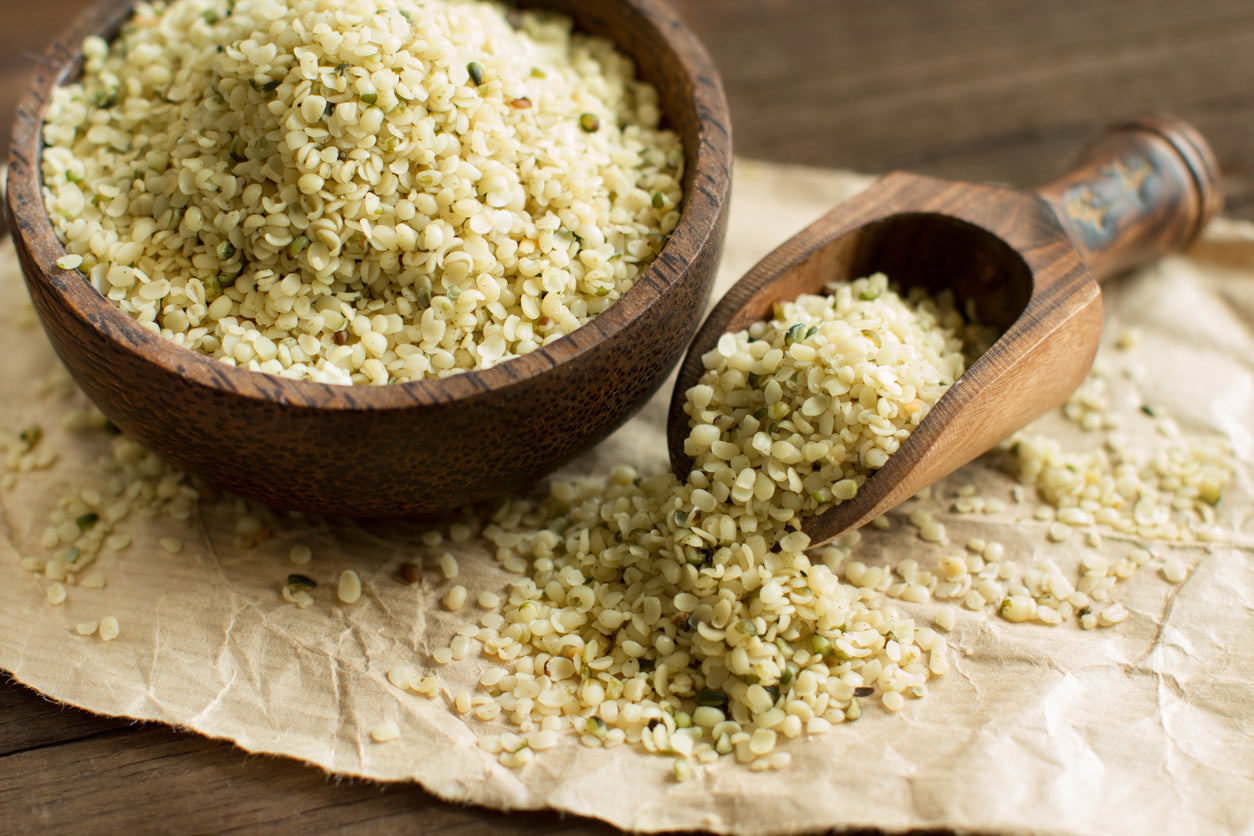Guardian of wellness: How hemp nurtures your brain and heart

You may have heard the “buzz” surrounding the benefits of hemp seeds - which is ironic. While hemp seeds originate from the Cannabis sativa plant, they won’t give you much of a buzz. These tiny brown seeds have no hallucinogenic or mind-altering effects whatsoever. What they may do, however, is alter your health - for the better.
Hemp seeds are not only a nutritious superfood in their own right - but have been used for millennia in Traditional Chinese Medicine and other natural healing systems to reduce inflammation and support well-being. Let’s see what else these tiny dynamos can do.
CBD in hemp seeds may protect against Alzheimer’s disease
The primary “secret weapon” in hemp seeds is a compound known as cannabidiol (CBD for short). A 2018 review published in Surgical Neurology International credits CBD with antioxidant, anti-inflammatory, and neuroprotective effects, which means hemp seeds may help combat neurodegenerative conditions such as Alzheimer’s disease, Parkinson’s disease, and multiple sclerosis.
Over the past five decades, researchers have discovered that the brain, nervous, and immune systems have receptors for cannabinoids - including THC, CB1, and CB2 - and that some cannabinoids are even created naturally in the body. (Surprising, but true!) Scientists believe that manipulation of this natural endocannabinoid system may modulate factors associated with Alzheimer’s disease, such as brain inflammation and the formation of “tau” tangles. And the potential benefits don’t stop there.
Studies have shown that CBD may ease anxious and depressive behaviors. Of course, many of these studies have been conducted with CBD extracts - which offer more CBD than one would get from simply eating hemp seeds. But, in light of CBD’s beneficial properties, it seems reasonable that consuming judicious amounts of hemp seeds can contribute to brain health.
Promote heart and metabolic health with hemp seeds
Hemp seeds are rich in arginine, an amino acid that is converted in the body to nitric acid. This natural compound helps to lower blood pressure by dilating and relaxing the blood vessels. In a study of 13,000 people published in Nutrients, researchers found that increased arginine intake was associated with lower C-reactive protein levels. Since higher levels of CRP are linked to heart disease, this is good news for heart health.
Hemp seeds also contain magnesium and potassium, which help regulate heartbeat and blood pressure. But the real “heart” of hemp seeds’ cardioprotective effects could be their content of omega-3 and omega-6 fatty acids. Omega-3s, in particular, are considered “MVPs” when supporting heart health. Systematic reviews of these fatty acids have shown that higher dietary intakes are associated with a lower risk of heart failure, arrhythmias, and coronary disease. All things considered, hemp seeds are a very heart-friendly food.
Hemp seeds are undeniably a “superfood”
With each 30-gram serving (three ounces, or about 3 tablespoonfuls) containing close to 11 grams of high-quality protein, hemp seeds are almost as protein-rich as soybeans - and a better source than flaxseeds and chia seeds. Very few plant-based foods are complete protein sources, so hemp seeds are a “stand-out” because they contain all nine amino acids needed to make this vital macronutrient.
In addition, they contain the amino acid cysteine, which is a building block of glutathione, the body’s premier disease-fighting antioxidant enzyme. And, as we have seen, the fats hemp seeds contain - omega-3 and omega-6 fatty acids - are nutritional “good guys” that can fight inflammation. A three-ounce serving of hemp seeds also contains over a gram of fiber, which helps to stabilize blood sugar, promote healthy weight, and support optimal balance in the gut microbiome. Finally, hemp seeds are a good source of bone-building phosphorus and the B vitamins niacin, thiamine, riboflavin, and pyridoxine. The takeaway: these little nuggets of flavor are crammed with important nutrients.
Use versatile hemp seeds raw, cooked, ground or whole
Hemp seeds, sometimes known as hemp hearts, can be enjoyed either raw or roasted. They have a mild, nutty flavor and can add texture and crunch to oatmeal, cereal, yogurt, casseroles, and dips. Sprinkle them over a salad, add them to soups, or use ground hemp seeds to enhance your favorite smoothie. Hemp seeds can also be employed to enrich muffins, bread, and cakes. (When you think about it, there are very few foods that don’t benefit from the addition of hemp seeds).
You can buy hemp seeds shelled (or de-hulled), but nutritionists report that hemp seeds with the hulls intact are higher in beneficial dietary fiber.
Ideally, hemp seeds contain no THC (or tetrahydrocannabinol, the psychoactive constituent in marijuana responsible for the “high). Depending on the manufacturer, however, some hemp seeds may contain amounts of THC that - while small - exceed the legal limit of 0.3 percent. People who undergo drug testing should know that hemp seeds can cause failed urine tests.
No, hemp seeds won’t make you “high.” But when it comes to providing outsize health benefits and nutrition, these protein-packed little seeds are near the very top of the food chain.
Sources for this article include:






